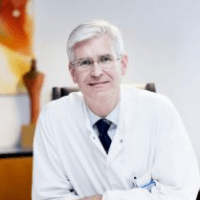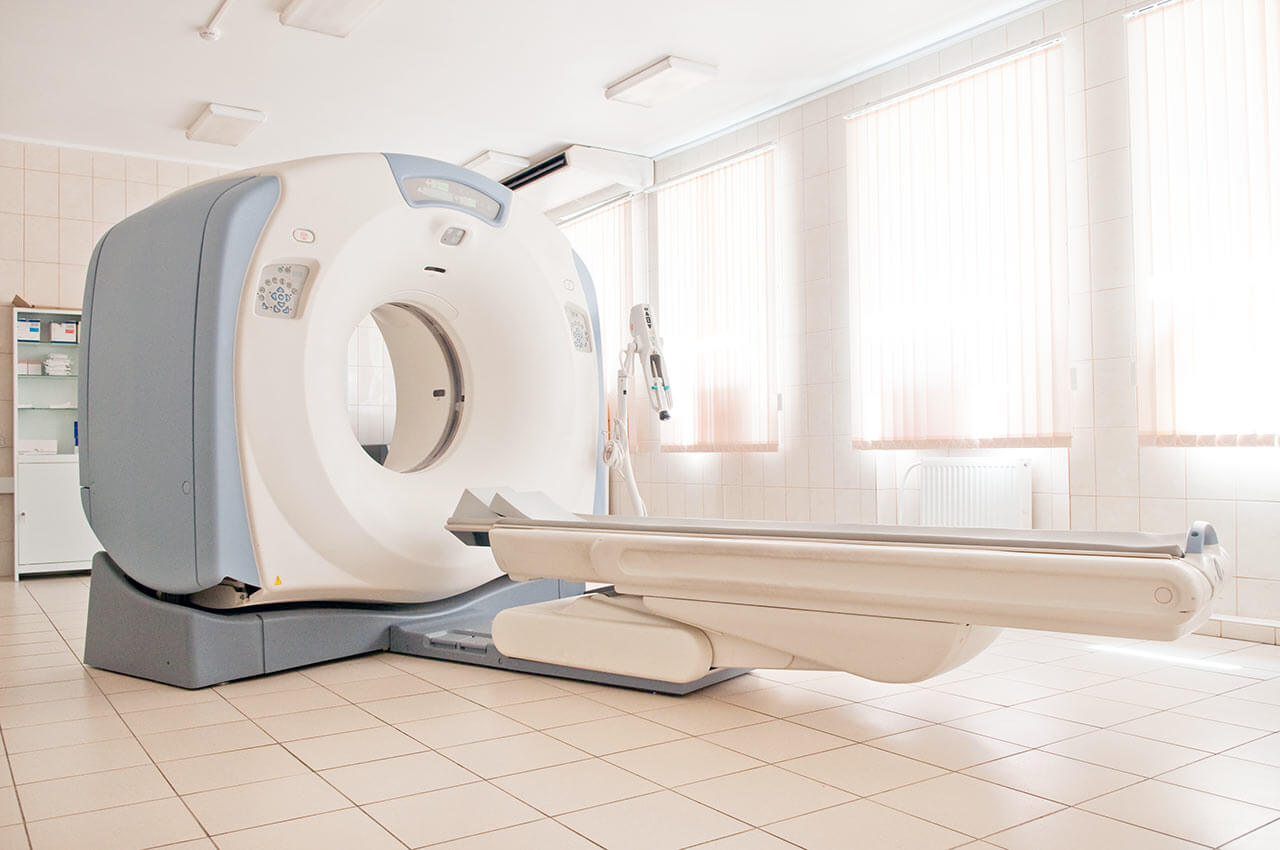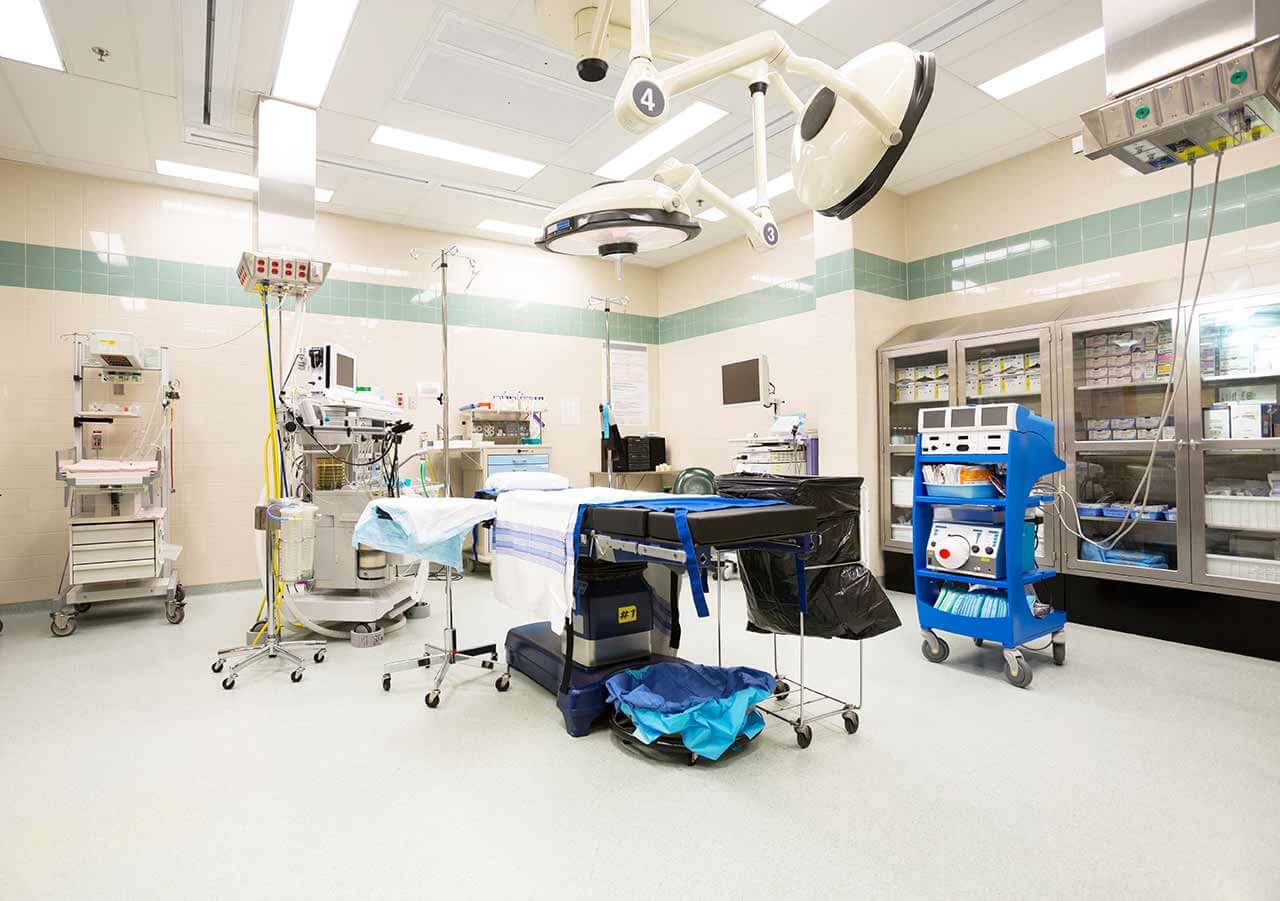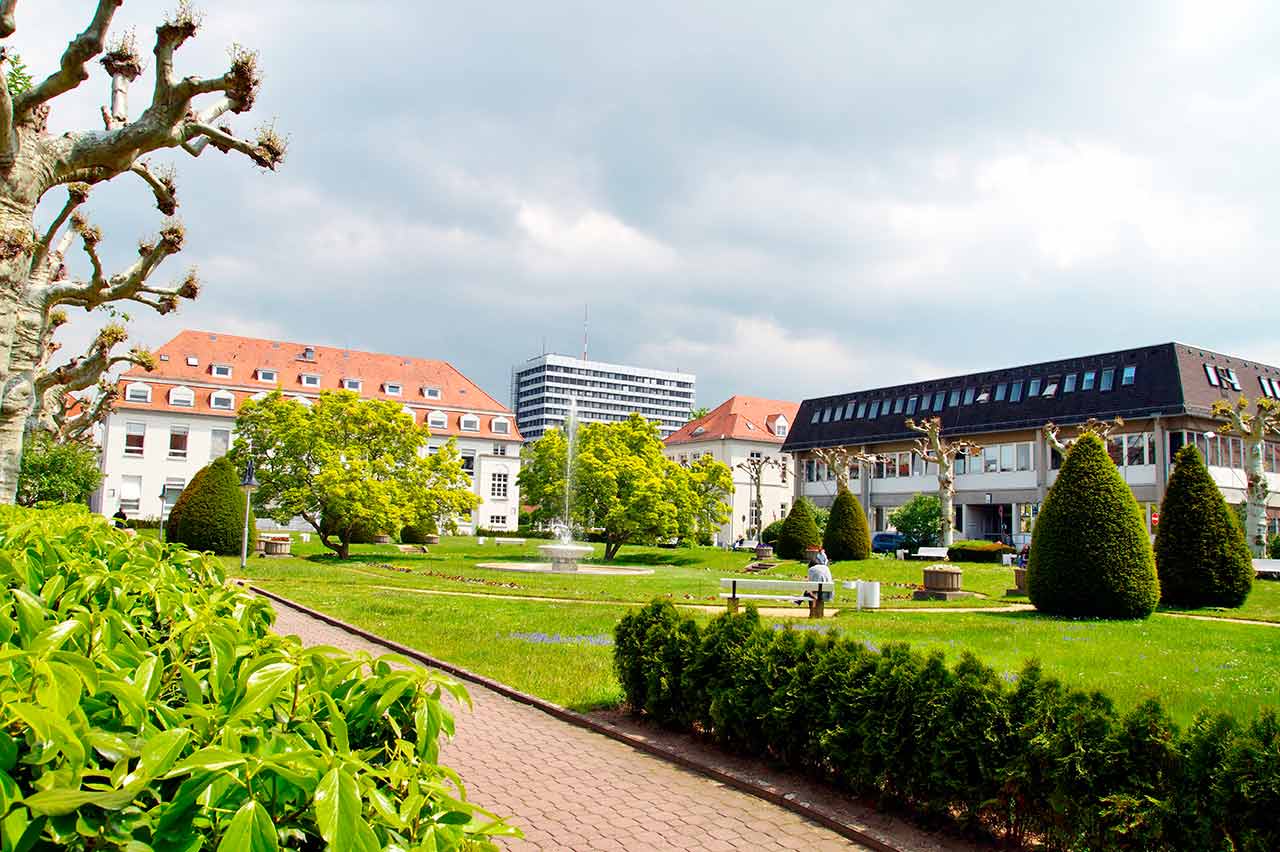
The program includes:
- Initial presentation in the clinic
- clinical history taking
- review of medical records
- physical examination
- laboratory tests:
- complete blood count
- general urine analysis
- biochemical analysis of blood
- inflammation indicators (CRP, ESR)
- indicators of blood coagulation
- antinuclear antibodies (ANA)
- anti-dsDNA
- anti-Smith
- blood test for syphilis
- ultrasound of the abdomen und kidney
- MRI scan (on indication 1200€)
- differential diagnosis of other diseases of the skin
- nursing services
- consultation of related specialists
- consultation of the chief physician and all leading experts
- development of individual treatment plan
- written statement
Required documents
- Medical records
Service
You may also book:
 BookingHealth Price from:
BookingHealth Price from:
About the department
The Department of Rheumatology and Clinical Immunology at the University Hospital Mainz offers modern diagnostics and treatment of rheumatic diseases causing pain and functional disorders in the musculoskeletal system. The experienced specialists of the department select the most effective drug therapy for each patient and complement it with the appropriate types of physiotherapy. All the therapeutic measures are aimed at improving patient's health and quality of life. The department is headed by Prof. Dr. med. Andreas Schwarting.
It should be noted that one of the important focuses of the department is the improvement of treatment methods, therefore the patients have the opportunity to take part in the clinical trials that are carried out here on a regular basis. The main priorities of the trials are the improvement of therapy in systemic lupus erythematosus, rheumatoid arthritis, ankylosing spondylitis, and psoriatic arthritis.
The diagnostic options of the department include:
- Medical history gathering and physical examination
- Examination and consultation (by one medical specialist)
- Electrocardiography
- Long-term blood pressure monitoring
- Sonography of the internal organs
- Sonography of all joints
- Endoscopy
- Biopsy
- Joint puncture and synovial fluid testing
- Capillary microscopy
- Special laboratory tests
- Bone mineral density measurement (in collaboration with the Department of Radiology)
- Prolonged electrocardiography and transthoracic echocardiography (in collaboration with the Department of Cardiology)
- Pulmonary function testing with blood gas analysis (in collaboration with the Department of Pulmonology)
- Radiological examinations (in collaboration with the Department of Radiology)
- Other diagnostic services
The main clinical focuses of the department include the diagnostics and treatment of the following diseases:
- Inflammatory joint diseases (arthritis)
- Rheumatoid arthritis (especially chronic polyarthritis)
- Seronegative spondyloarthritis
- Ankylosing spondylitis (Bechterew's disease)
- Reactive arthritis
- Reiter's syndrome
- Psoriatic arthritis
- Enteropathic arthritis
- Connective tissue inflammatory diseases (collagenosis)
- Systemic lupus erythematosus (SLE)
- Lupus nephritis
- Antiphospholipid syndrome
- Polymyositis and dermatomyositis
- Progressive systemic scleroderma
- Sjogren's syndrome
- Mixed connective tissue disease
- Inflammatory vascular diseases (vasculitides)
- Wegener's granulomatosis
- Churg-Strauss syndrome
- Microscopic polyarteritis
- Polyarteritis nodosa
- Kawasaki disease
- Temporal arteritis
- Polymyalgia rheumatica
- Horton's disease
- Takayasu’s disease
- Care for the pregnant patients with rheumatic diseases
- Diagnostics and treatment of other rheumatic diseases
Curriculum vitae
- 1984 - 1991 Study of Human Medicine at the Rhenish Friedrich-Wilhelm University of Bonn, Karolinska Institute (Stockholm) and Uppsala University (Sweden).
- 1987 - 1989 Medical practice (while studying) in Bonn, Berlin, Munich, Stockholm, Uppsala.
- 1990 - 1991 One-year practice, Ostersund Regional Hospital (Uppsala University) and Mechernich Regional Hospital (University of Bonn).
- 1991 Intern, Department of Internal Medicine I, University Hospital Mainz (Head: Prof. Dr. Dr. Dr. h.c. Meyer zum Buschenfelde).
- 1992 Doctoral thesis defence, Institute of Neurobiochemistry, University of Bonn (magna cum laude).
- 1992 - 1996 Assistant Physician, Department of Internal Medicine I, University Hospital Mainz.
- 1996 - 1997 Research Fellow, Brigham and Women's Hospital, Boston (Director: Prof. Dr. Barry Brenner).
- 1997 - 1998 Research Fellow, Harvard Institute of Medicine, Harvard University, Boston.
- Since 1998 Establishment of a Research Group on Nephrology, Rheumatology and Clinical Immunology at the Department and Polyclinic of Internal Medicine I, University Hospital Mainz.
- 1999 Medical Specialist in Internal Medicine.
- 2001 Additional qualification in Nephrology.
- Since 2001 Senior Physician in the Department of Internal Medicine I (Rheumatology, Nephrology, Dialysis, Transplantation, Intensive Care, Clinical Immunology).
- Since 2001 Venia Legendi, Internal Medicine.
- Since 2002 Head of the Department of Rheumatology and Clinical Immunology.
- 2005 Additional qualification in Hypertensiology (German Hypertension League).
- 2005 - 2006 Advanced training in Rheumatology, Department of Rheumatology at the Charite Hospital.
- 2006 Additional qualification in Rheumatology.
- 2006 W2 Professor and Head of the Department of Rheumatology and Clinical Immunology at the University Hospital Mainz.
- Since 2006 Director of the ACURA Rheumatology Center (previously: Rheumatology Center Sana Bad Kreuznach).
Photo of the doctor: (c) Universitätsmedizin der Johannes Gutenberg-Universität Mainz
About hospital
The University Hospital Mainz is one of the best maximum care medical facilities in Germany and an internationally recognized scientific center. There are more than 60 departments and institutes, which represent all fields of modern medicine. The hospital serves more than 68,000 inpatients and more than 273,000 outpatients annually, which testifies to the excellent reputation of this medical institution.
The key to the successful clinical practice is also a highly qualified medical staff, which consists of 7.800 employees from various fields. The doctors of the hospital are convinced that each clinical case requires an individual approach, therefore, they devote much time to consultations and communication with patients. The main goal of all hospital employees is to provide an optimal medical care based on the use of the state-of-art diagnostic and therapeutic measures, as well as the introduction of the latest scientific achievements into the medical practice.
The best interns and assistant physicians are trained here. The world-famous leading physicians of the hospital share their long experience and professional skills. Naturally, an integral part of the university hospital work is research, thanks to which many innovative possibilities in the field of diagnostics and therapy have been developed.
Photo: (c) depositphotos
Accommodation in hospital
Patients rooms
The patients of the University Hospital Mainz live in bright, spacious and comfortable rooms. The patient rooms are equipped with modern electronically adjustable beds, which at the touch of a button automatically assume a specified position. Also, there is a TV and a telephone in the patient rooms. To use them, it is necessary to get a prepaid card (in vending machines at the entrance to the hospital). The use of a TV is free, but the patient will need headphones. Telephone calls are made for a fixed fee, which will be withdrawn from the prepaid card at discharge from the hospital. Also, each patient room is equipped with an ensuite bathroom with shower, washbasin and toilet.
Meals and Menus
The patients of the hospital are offered a tasty and balanced three meals a day: breakfast, lunch and dinner. The menu also includes vegetarian and dietary dishes. In addition, for both patients and their visitors there are available cafeterias and bakeries, where one can buy baked goods, snacks, hot and cold drinks.
Further details
Standard rooms include:





